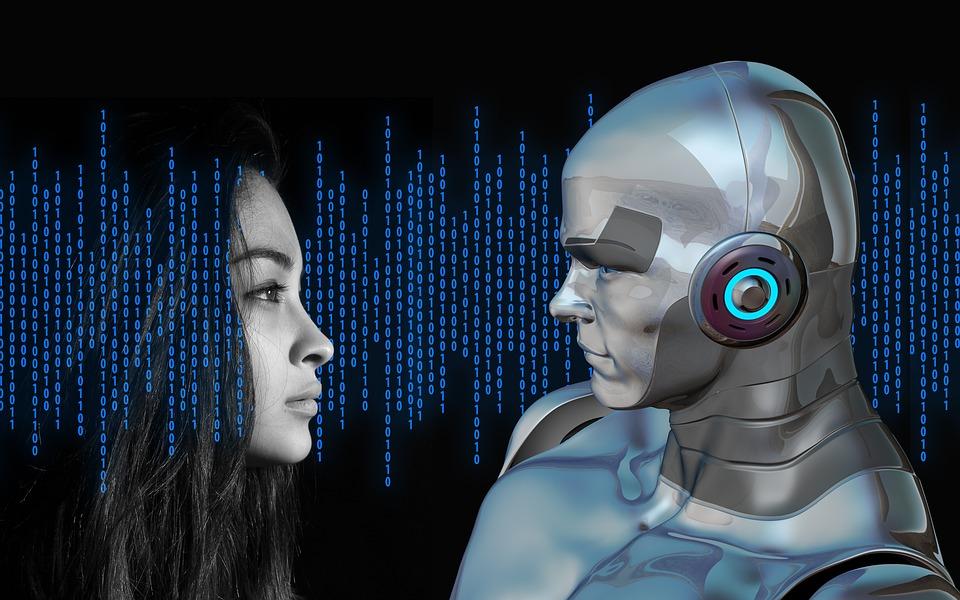Since the 1950s when MIT computer scientist John McCarthy first coined the term “artificial intelligence”, the technology has grown in leaps and bounds across the globe. Today, AI permeates several strata of the digital experience – from web crawlers on websites to humanoid robots that can mimic human expression and speech.
copyright by techcabal.com
 In Nigeria (and Africa), the proliferation of artificial intelligence is very much still in its infancy thanks to several problems ranging from a lack of adequate infrastructure to cultural and socio-economic barriers to adoption.
In Nigeria (and Africa), the proliferation of artificial intelligence is very much still in its infancy thanks to several problems ranging from a lack of adequate infrastructure to cultural and socio-economic barriers to adoption.
But that doesn’t mean Africa is taking a backseat and ‘unlooking’. As far back as 2008, South African company BrandsEye was already using a proprietary mix of search algorithms, crowdsourcing and machine learning to mine online conversations for sentiment and provide that data to enterprise customers. Also, Egyptian startup Affectiva , launched in 2009 by Rana El Kaliouby , uses emotion recognition to detect moods and make decisions based on facial expressions and has raised $34 million in venture capital till date.
In Nigeria, the space is heating up, slowly but surely. Data Science Nigeria , a non-profit convened by Bayo Adekanmbi (Chief Transformation Officer at MTN Nigeria), recently launched Nigeria’s first AI-focused hub at the University of Lagos and there is a slew of AI-focused startups building great solutions.
Even more traditional entities like banks have delved into the space – great examples are Diamond Bank and United Bank for Africa (UBA) who have launched AI-powered digital assistants ( ‘Ada’ and ‘Leo’ , respectively) in recent months. Sizeable investments by Google ( with a new AI hub in Ghana ) and Facebook ( with its NG_Hub setup in Lagos in partnership with CcHub) are also validating the advent of AI in Nigeria and Africa.
Obviously, this uptick in activity within the AI space in Nigeria is largely due to improving conditions within the general ecosystem over the past few years. There is more investment coming into the space and the skills needed to do AI are becoming much more accessible with programs like Andela and Google’s ALC Udacity scholarship. […]
read more – copyright by techcabal.com


Since the 1950s when MIT computer scientist John McCarthy first coined the term “artificial intelligence”, the technology has grown in leaps and bounds across the globe. Today, AI permeates several strata of the digital experience – from web crawlers on websites to humanoid robots that can mimic human expression and speech.
copyright by techcabal.com
But that doesn’t mean Africa is taking a backseat and ‘unlooking’. As far back as 2008, South African company BrandsEye was already using a proprietary mix of search algorithms, crowdsourcing and machine learning to mine online conversations for sentiment and provide that data to enterprise customers. Also, Egyptian startup Affectiva , launched in 2009 by Rana El Kaliouby , uses emotion recognition to detect moods and make decisions based on facial expressions and has raised $34 million in venture capital till date.
In Nigeria, the space is heating up, slowly but surely. Data Science Nigeria , a non-profit convened by Bayo Adekanmbi (Chief Transformation Officer at MTN Nigeria), recently launched Nigeria’s first AI-focused hub at the University of Lagos and there is a slew of AI-focused startups building great solutions.
Even more traditional entities like banks have delved into the space – great examples are Diamond Bank and United Bank for Africa (UBA) who have launched AI-powered digital assistants ( ‘Ada’ and ‘Leo’ , respectively) in recent months. Sizeable investments by Google ( with a new AI hub in Ghana ) and Facebook ( with its NG_Hub setup in Lagos in partnership with CcHub) are also validating the advent of AI in Nigeria and Africa.
Obviously, this uptick in activity within the AI space in Nigeria is largely due to improving conditions within the general ecosystem over the past few years. There is more investment coming into the space and the skills needed to do AI are becoming much more accessible with programs like Andela and Google’s ALC Udacity scholarship. […]
read more – copyright by techcabal.com
Share this: